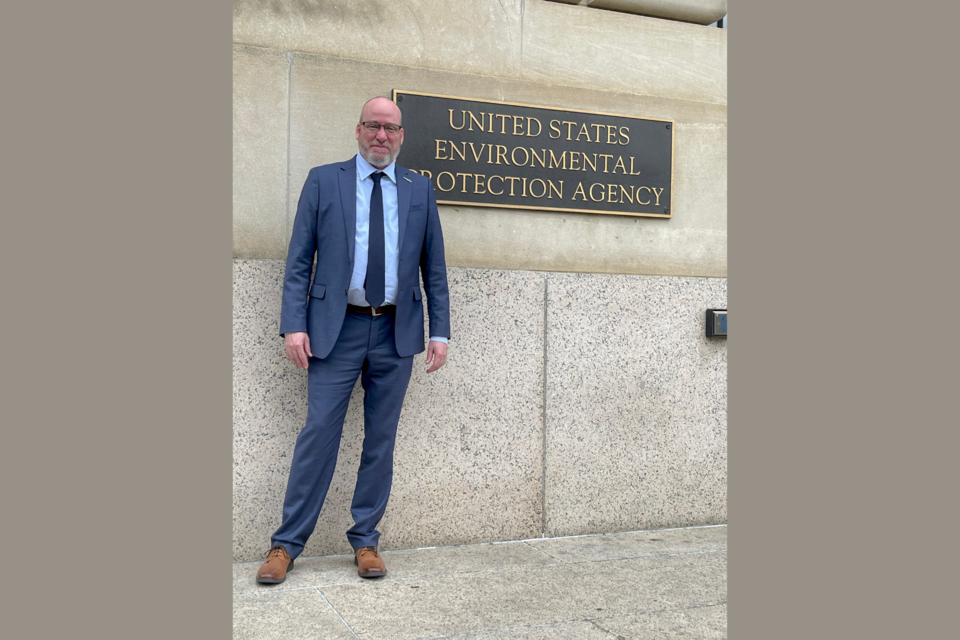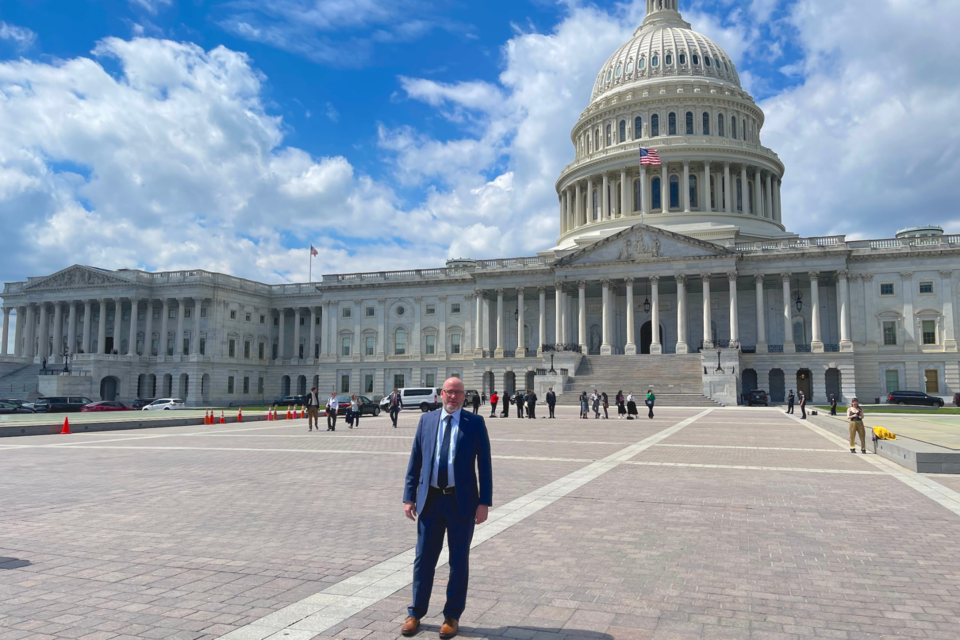Damon Mullis, executive director and riverkeeper for Ogeechee Riverkeeper (ORK), traveled to Washington, DC, last week to engage with the Environmental Protection Agency (EPA) and legislators regarding the critical issue of Per- and Polyfluoroalkyl Substances (PFAS) regulation.
Mullis expressed gratitude for the recent efforts made by the EPA and lawmakers in establishing new regulations concerning PFAS levels in drinking water.
During his visit, Mullis commended the EPA and legislators for taking the initial steps in addressing PFAS contamination. He emphasized the significance of these regulations as a foundational measure in safeguarding public health. However, Mullis underscored the urgent need for further action, particularly in the areas of fish tissue consumption guidance and the elimination of PFAS from sources such as sludge used for fertilizers.

PFAS are a group of synthetic chemicals commonly found in various household and industrial products. These persistent chemicals bioaccumulate and pose a significant danger to human health and the environment due to their potential toxicity. PFAS have been linked to adverse health effects, including cancer, immune system disorders, and developmental issues.
Their widespread use and persistence in the environment make them a pressing concern for communities worldwide, highlighting the urgent need for comprehensive regulation and mitigation efforts to reduce exposure and protect public health.
In a statement regarding his visit, Mullis said, "I was in DC last week to thank EPA and legislators for putting out new rules on acceptable levels of PFAS in drinking water. I applauded this important first step but also reminded them that fish tissue consumption guidance is needed."
In 2018, ORK discovered PFAS was present in fish in the Ogeechee River. Since then, ORK has been working to track potential sources, press for fish consumption guidelines, and advocate for regulations around chemical uses and discharges into waterways.
The new regulations and guidance are available here, and the EPA’s press release is available here.
About Ogeechee Riverkeeper
Ogeechee Riverkeeper 501(c)(3) works to protect, preserve, and improve the water quality of the Ogeechee River basin, which includes all of the streams flowing out to Ossabaw Sound and St. Catherine’s Sound. The Canoochee River is about 108 miles long and the Ogeechee River itself is approximately 245 miles long. The Ogeechee River system drains more than 5,500 square miles across 21 counties in Georgia. More at ogeecheeriverkeeper.org.




